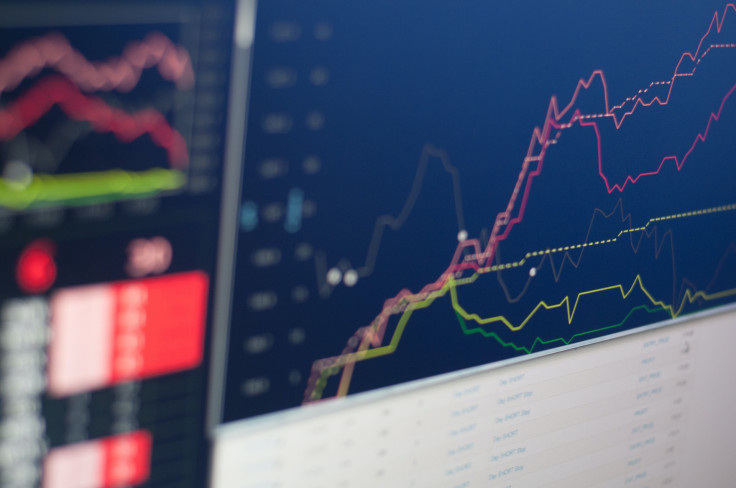
The seven magnificent tech companies' shares — Apple, Microsoft, Meta, Amazon, Alphabet, Nvidia and Tesla — had another banner year on Wall Street. They delivered returns that beat the major market averages by a significant margin.
Though past performance isn't a guarantee for future performance, as the usual Wall Street disclaimer goes, there is a good reason to believe that the Magnificent Seven will continue to outperform the market for many more years.
They all have effective business models for managing other people's money, deploying it into business opportunities that deliver superior returns.
"Big Tech has had an outstanding run in 2023, rebounding strongly off 2022-lows," Tejas Dessai, AVP, research analyst at Global X, told International Business Times. "Investors judged these stocks a bit too harshly for the impact from rate hikes, but the resiliency of their business models and the potential presented by emerging opportunities like Generative AI helped change the narrative."
Dessai believes the Magnificent Seven will continue outperforming the market in 2024.
"Fundamentals are improving, and we see growing momentum in key themes for these companies," he added.
From a financial perspective, publicly traded corporations manage other people's money — the debt holders and shareholders.
Wall Street has developed several valuation metrics to measure how effective these corporations are in achieving this goal, like the total shareholder return (TSR). It measures what shareholders earn from investing in the shares of a corporation in terms of capital gains and dividends.
The problem with TSR is that it needs to be more sensitive to cash flow manipulations. They can boost short-term performance at the expense of long-term cash flow performance. In addition, TSR can be influenced by investor sentiment that distorts valuations.
Another popular valuation metric is the core operating shareholder performance (COSR). It measures the value generated through the corporation's core operations.
But it, too, has its limitations. It fails to connect shareholder performance with the opportunity cost of capital and the corporate competitive advantage.
Still, a better valuation metric is economic profit (EP) or economic value added (EVA).
That's the difference between the return on invested capital (ROIC) and the weighted average cost of capital (WACC) multiplied by the invested capital.
Economists view WACC as the "normal profit" of investing, what investors can earn by investing their money in equity and debt funds that match the performance of popular market indexes. Thus, EVA is a measure of superior market returns — returns more than the opportunity cost of capital.
One of the appeals of EVA is that it connects investment performance with the corporation's competitive advantage.
Corporations with high barriers to entry — referred to as "moats" in Warren Buffett's terminology — protect their market from competition, leading to high EVA returns that are sustained over the long term and outperform market averages.
That has been the case with the Magnificent Seven: They all have solid moats and a superior business model for managing other people's money, as evidenced by the positive and rising EVA.
For instance, Microsoft has a strong global brand, enjoying economies of networking, with Windows having a 76.33% market share in the global operating system market, with over 1 billion Windows users worldwide. Economies of network and "lock-in" relations with users make it almost impossible for competition to invade its market.
Likewise, Apple's firm brand name, iOS operating system and extensive ecosystem have turned the smartphone innovator into a gatekeeper and toll collector of the internet traffic.
As a result, both companies have delivered solid EVA numbers. Over the last five years, Microsoft's EVA soared by 640%, while Apple's EVA rose by 400%. These gains have exceeded the market gains of the two companies over the said period, suggesting that their shares may still be undervalued.
"At current prices, both Meta and Alphabet are the most undervalued with forward P/E ratios of 19 and 20, respectively," David I Kass, clinical professor of finance at the University of Maryland, told IBT. "Their forward P/E ratios approximately equal that of the S&P 500 (about 19) but are likely to achieve superior growth in the years ahead. Similarly, Apple with a forward P/E of 28 and Microsoft with a P/E of 29 appear to be undervalued or fairly valued with substantially greater projected growth than that of the overall market."
But not everyone agrees with this assessment. Marc Dizard, CFA, CFP, chief investment strategist at PNC Asset Management Group, is one of them.
"When we look at the magnificent seven as a group, it is hard to argue that they do not look overvalued," he told IBT. "As of November 30th, the forward price to earnings multiple of the top 10 holdings in the S&P 500 was 30.9x vs. 17.6x for the bottom 490 companies. From a historical perspective, this is well above trend."
Disclosure: The author owns shares of Microsoft, Apple, Alphabet, Meta and Amazon.







